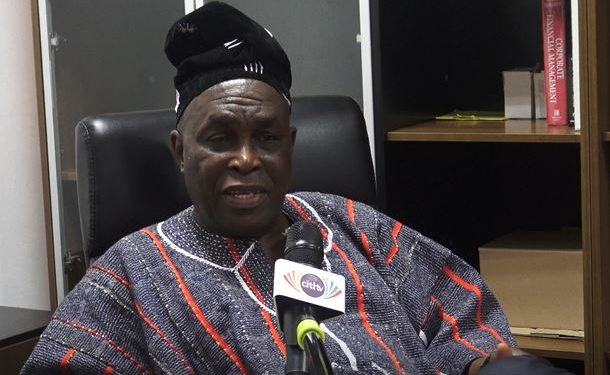Labour Expert, Austin Akufo Gamey, has said that until something significant changes with the economic data, public servants would have to cope with the recently announced base pay increase of just 4%.
According to him, after negotiations and all parties signing to the final decision, little can be done on renegotiation of a base pay; the best one can get is the Cost-of-Living Allowance (COLA) – money paid to cover additional living costs incurred by employees due to economic challenges unanticipated.
Speaking to the B&FT on the back of rising agitations after the announcement that public servants were going to have a 4 and 7percent base pay increase for 2021 and 2022- the lowest increment in a decade, Mr. Gamey said calls for the parties to renegotiate, is a difficult call.
“If the parties go to the table and make every reasonable effort and negotiate in good faith, reach agreement and sign unto it, then they would have to hold unto that excerpt if after the negotiation the economic data that was used in reaching the decision significantly changes.
When this happens, a party can call for a come back to the table; there, the new concerns would come up. Even with that, what can be asked for is some form of Cost-of-Living Allowance (COLA) but not a pay increase. This is because the negotiation is deemed to have happened in good faith and therefore it is quite impossible to alter it. The COLA is just to bridge a gap that has made public servants worse off after negotiation,” Mr. Gamey told the B&FT.
He added that in this instance of a 4 and 7%, if only labour can prove that the data has dramatically change after the negotiations, then they can call for some COLA.
Labour unrest
Since the base pay for 2021 and 2022 was announced last month, there has been an uproar among labour unions with some labour experts predicting some unrest in the coming days.
Already, the Ghana National Association of Teachers (GNAT), National Association of Graduate Teachers (NAGRAT), Coalition of Concerned Teachers (CCT) and a section of civil servants have expressed extreme dissatisfaction. GNAT President, Philippa Larsen has said publicly that if the base pay stays this low, teachers would ‘rise up’.
The Ghana Medical Association (GMA) has diplomatically reminded the government of its failure to implement agreed conditions of service. In a letter copied to the Fair Wages and Salaries Commission (FWSC), the GMA stated that their members agreed to give the government two months to put in place measures to meet the conditions of service, which includes some arrears and healthcare. Failure of government to do so, doctors will embark on a strike action on Friday, October 1.
Parties Involved
Last month, the Public Services Joint Standing Negotiating Committee (PSJSNC) announced the base pay increment, saying it was the best government and labour could agree to. The committee, made up of government, organised labour and employers agreed to the base pay. Meaning that public servants paid GH¢1,000, will receive a GH¢40 top-up this year and GH¢70 next year.
Government labour negotiation
Organized Labour had proposed a 15% rise for both years but subsequently reduced it to 10% each. But government insisted on its earlier proposal of 4 and 6% for 2021 and 2022 respectively. However, as Organized Labour kept on with its proposed figures of 10% for both years, government tabled 4 and 7% for 2021 and 2022.
Government’s reasons
Government, represented by the Minister of Employment and Labour Relations, Ignatius Baffour Awuah and Minister of Finance Ken Ofori-Atta cited the effect of COVID-19 on the economy and pleaded with labour to find a middle ground to support the economic recovery process.
According to the government, the state would be forced to retrench some public sector workers and halt employment if they are forced to agree with the 10% increase for both years. Organized Labour after some caucus deliberations on accepted the government’s proposal as a means to protect the jobs and help in the economic recovery process.
Conditions from labour
Organized Labour, however, pushed for some conditions; that the agreement takes effect from January 1, 2021 with the payment of arrears spread as follows; month 1 (January) arrears payment added on to August salary, month 2 arrears (February) added to September; in the same order for October and November and 2 months arrears on December 2021 completing the 6 months arrears.
The second condition was an agreement that there would be no retrenchment during the period. The third is for government to continue to recruit into the public sector. Fourth was for government to ensure that vaccines are made available for public sector workers. Lastly was for government to ensure full payment of Tier 2 pension.










